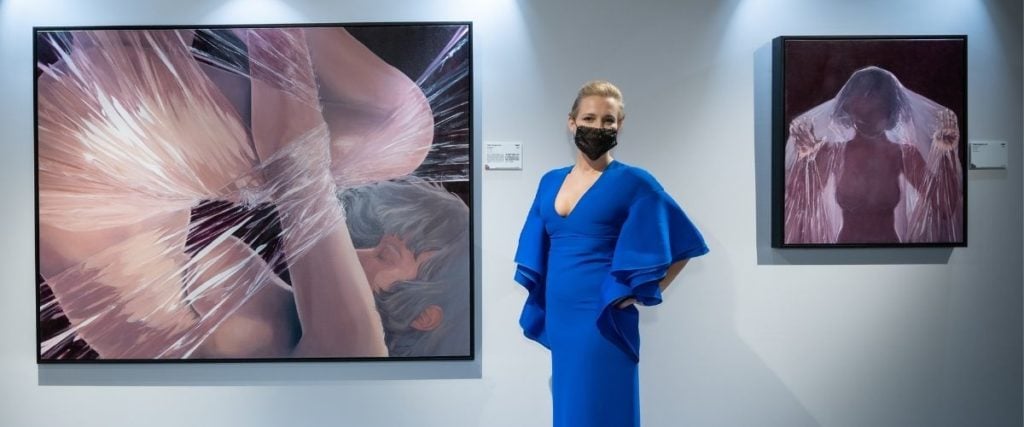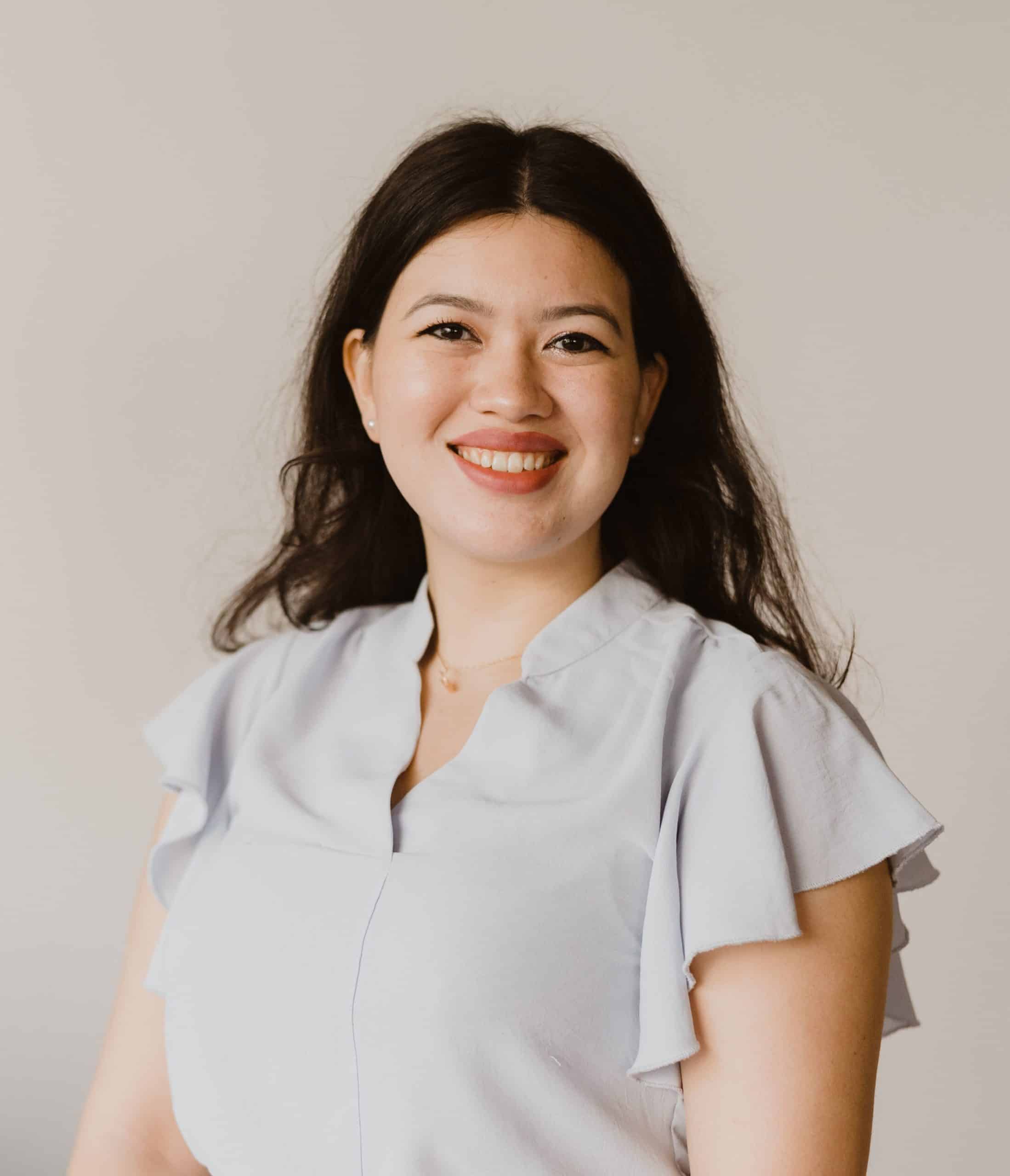Katharina Reimer, the Executive Director of the Karen Leung Foundation, speaks about the importance of raising gynaecological cancer awareness in Hong Kong and the Foundation’s ongoing The ExtraOrdinary Exhibition art fundraising event.
The Karen Leung Foundation (KLF) was founded in 2013 in honour of Karen Leung, a hedge fund trader who was diagnosed with metastatic cervical cancer and passed away at the age of 35. The organisation works to save lives in Hong Kong by raising awareness of gynaecological cancer, educating women to increase rates of early detection, and ensuring that women in treatment have access to optimal medical care.
Having raised over HK$27 million for their educational, early detection, and treatment programmes, KLF is the first and only organisation in Hong Kong solely devoted to gynaecological cancer in women.
KLF’s Executive Director, Katharina Reimer, sat down with Hive Life to discuss KLF’s work, their ongoing art fundraising event The ExtraOrdinary Exhibition, methods of prevention and early detection, and how to join in on the conversation.
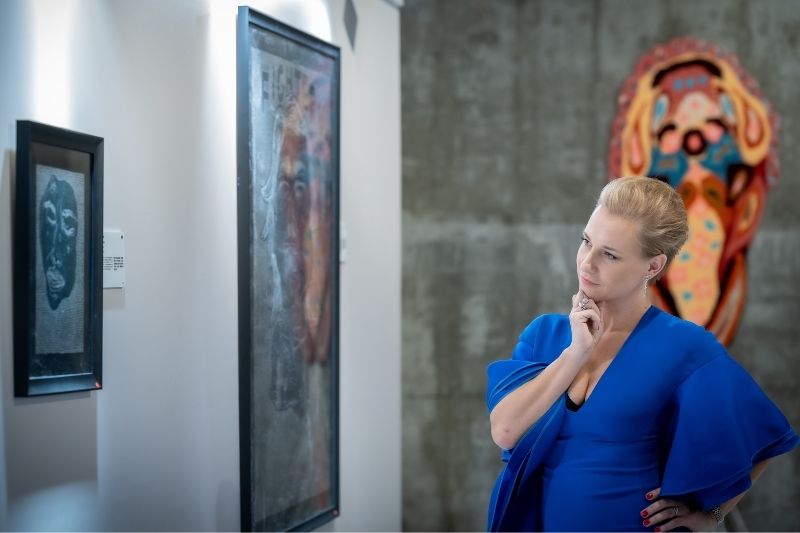
Can you introduce us to the work you do at KLF?
The Karen Leung Foundation was started nine years ago in honour of Karen Leung, who was a hedge fund trader at Oasis. Her husband and employer started the Foundation in her honour.
We’re the only charity in Hong Kong which looks at gynaecological cancers, however, those tend to be the most prevalent. They consist of five different cancers: cervical, uterine, ovarian, vaginal, and vulvar. Out of those five, you see three in the top 10 of female cancers in Hong Kong, after breast cancer.
KLF looks across three different pillars: the awareness raising of gynaecological cancers, the prevention thereof, and then care and support.
We started with prevention because in 2013, there was no universal vaccine programme supported by the government. Cervical cancer is easily preventable through HPV vaccination. We started off by going into schools and providing free jabs, and an educational component for parents, teachers, and kids. This way, you have a sustainable approach to trying to create impact.
A policy change happened in 2018, and the Hong Kong government is now funding the HPV vaccine for girls of age 10 and 11 and it’s recommended in childhood immunization schemes. They were going to roll it out in 2019, but due to Covid it was a bit delayed, and the first cohort of young girls is now running.
How was the initial reception of your educational programmes?
In Asia specifically, there’s a big social stigma around anything related to the female organs, and [HPV] is a sexually transmitted disease. Sexual education here at the schools is quite minimal.
The vaccine is recommended before kids get sexually active, from 9 to 14. We’ve done studies alongside our programme, and one of the interesting findings was that the financial burden is not the only reason why parents don’t opt in. It’s also that their GP, for example, doesn’t recommend it because he doesn’t want to be perceived of recommending sex to the adolescents. So the whole notion, that parents thought, is if they raise the issue with their girls, it would lead the kids to starting to think about sex, and suddenly have sex.
I needed to think about a clever approach to talk to people about it, and to get them to think about it themselves. How do we address female health and wellness?
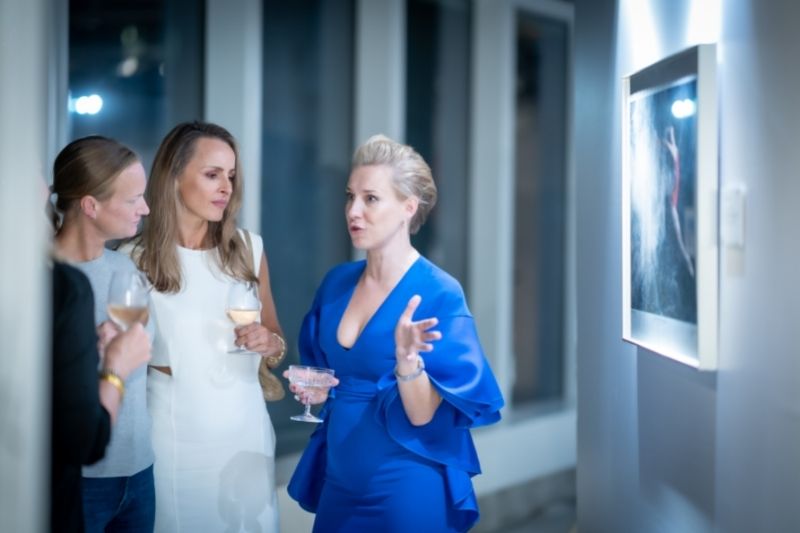
How did you start working in this industry?
I’m an economist by trade, I worked many years in financial services and consulting, and I’ve been [in Hong Kong for] 17 years. I was always involved in philanthropy, especially with an organisation, which is now called 100 Women in Finance, and I set up their philanthropy pillar in Asia. Within that organisation, we were seeking out money which we would give to different charities. This got me involved with different charities. Oasis approached me because they needed a business mind who could look beyond the healthcare aspect.
How did you start The ExtraOrdinary Exhibition?
I started thinking about universal languages in the world that everyone speaks, so art came up as a medium to explore.
We came up with this concept of the celebration of the female form. People are so body conscious these days, so it resonated with me to create an exhibition which could touch upon some of these themes which are talked about already in society, but need further nurturing.
We launched the exhibition last year, in three different locations, at the Eaton Hotel with a capsule collection, Tai Kwun for two weeks, and then at Woman Boss.
We had such great media uptake and responses. In terms of people, new people who came to the exhibition, even with volunteering. We were at Soho House for 30 days, and each day had four volunteers- just mobilising that kind of interest in the community, showcases that we hit a nerve.
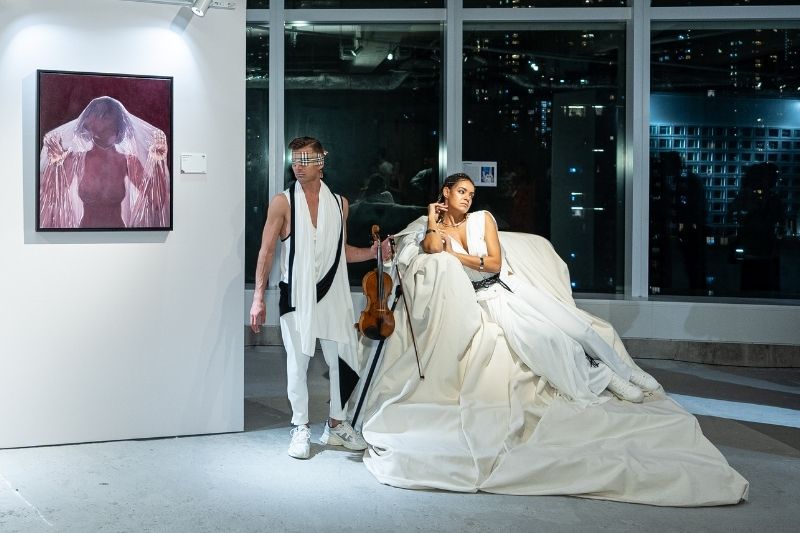
Where do proceeds from the exhibition go towards?
We distribute funding across our three pillars. Some of the funds will go towards the evaluation of The ExtraOrdinary Exhibition. Some people at HKU will help us with the evaluation process.
Social media has become a really big part for us across the last 22 months. While we always look for pro bono partners, we do have to spend some money to push out messaging around some of the events.
Within prevention, we are running a project with the Adventist Hospital Foundation, where we funnel 100 women into a scheme where they can get core testing done, i.e. a HPV DNA test and pap smear. Each woman will cost between HK$600 and $800 to funnel them, and hopefully to make sure they go by themselves thereafter.
We also have our care and support project where we provide rehabilitation for cancer survivors.
How can people get involved with KLF?
Go to The Hari to see the capsule collection and provide us with feedback about how you felt.
There’s also the online catalogue, which is open until the end of the year with over 45 art pieces for sale. One third is sold, but a couple of artists, for example Basil Pao, have donated prints. If you still need a Christmas present, there’s plenty of time to help us. The artists get 50%, and we get 50%.
In terms of volunteering, the exhibition will run again next year. Swire has already offered us a space for free in Taikoo Shing.
Otherwise, we are always looking for donations, if you don’t want to volunteer or buy a piece of art, come to our website, and make an annual donation.
How can women practice prevention and early detection?
Firstly, look at your health holistically. It’s not just going to the OBGYN once a year. Awareness is a big thing, not pushing early signs aside- and that could be anything from irregular to heavy periods, to not having periods, to having pain which is strange.
We all get busy, but if you go to the dentist, very often they already book you in for your follow-up. So just do it when you go and let them remind you in a year’s time. The Hong Kong government recommends every three years, but just do it every year. If you wait for years and say within those three years you would have picked up HPV, it’s more likely that something can develop to cervical cancer. It’s not just immediately where if you have HPV, you have a certain cancer tomorrow, but that’s where early detection comes into play.
The recommendation by the government is having a cervical smear which addresses cell changes on the cervix. and an HPV DNA test, which checks if you have the virus in you.
And so, if for example, you had the virus in you, then the recommendation is to go more often, just to make sure the body is clear. Even so it’s a very common virus and most of us just pass it through the system like any virus. And with some, it just sticks around, and if it sticks around again, it doesn’t mean you get cancer but you want to be able to keep track of it.
As soon as you get sexually active, you should start going. It’s good to get kids exposed to preventative routines, in the same way that we go to the dentist. Normalising the narrative around it early on is really important because if you make it taboo, then this is where we run into problems later on.
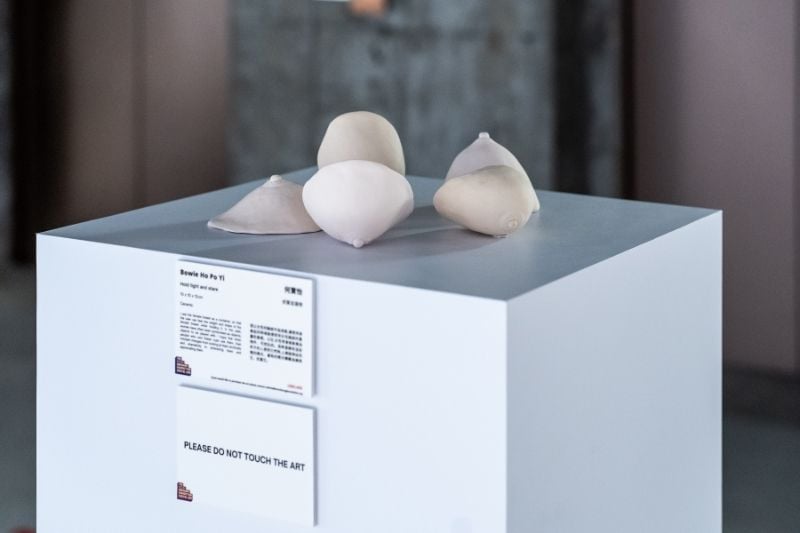
Is there anyone who might have a higher risk of developing gynaecological cancer?
If you go to the CDC website, you will see smoking amplifies cell growth across the body. Taking the contraceptive pill for many years. If you had HIV, because your body doesn’t pass viruses so easily. Having had more than three children. Frequent sexual partners and not practicing safe sex.
There are other risk factors because it is a sexually transmitted disease, and these high risk strains are sexually transmitted. You can also pick up HPV on the escalator but those are less severe strains. There are 175 viral strains of HPV and only some of them are responsible for causing HPV-related diseases.
And it’s not just cervical cancer now. There’s a big push by some of the pharma companies, to make sure that people understand that throat, nasal cavity, neck, anal, penile cancer and etc. are related to the HPV virus. It’s really important to stress that this is not just a conversation for girls and women. This is a conversation we all need to have together.
How can we take care of our health and love our bodies?
If you have not had the HPV vaccine when you were young, having a regular routine, amongst other things [is important]. If as a kid you had the HPV vaccine, you are more likely to go and get checkups, but the vaccine doesn’t give you lifelong coverage, maybe 20 years- and no vaccine is 100%.
What’s happening in the health and wellness industry is beneficial, where people are watching what they eat, that they don’t smoke, and are exercising. They’re doing their annual checkups, and most will actually already integrate a visit with their OBGYN.
The industry is changing, where when I came here 17 years ago, no female-related matters or prevention was included in health insurance. Now, you see the insurance world adapting to this new breed of consumers.
What are some of these practices that you apply in your life?
I’m very disciplined during the week, I do my morning walk, and I take some supplements. I believe that you are what you eat. On the weekends, you have also got to let loose. I structure and think from a health perspective. I’m also a yoga teacher, but I don’t really have time anymore to teach or do much myself.
Even if it’s just 10 minutes a day, spend it on yourself, and focus. Some do it with meditation, I do my walk in the mornings for 45 minutes, where I don’t listen to anything or read emails, and that’s my me time.
I generally do a month of detoxing a year, which is even cleaner eating, no alcohol at all, and walking every day. That also includes doing my checkups with my GP, the dentist, and the OBGYN.
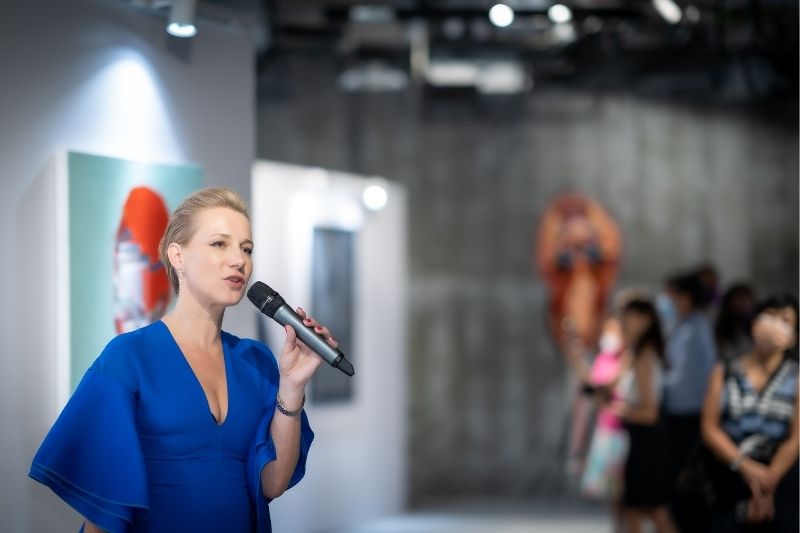
For those who are anxious about the results, how can we encourage them to go for regular checkups?
There’s nothing to be afraid of because it’s a 10 minute thing, and now, we do have the choice between going to a male or female doctor. The one thing is, even if you have something, but you detect it early, you’re not going to die from it. Holding off for 20 years because you are anxious about the result is certainly not the way to go.
The Family Planning Association is providing the annual checkup service for HK$100. HKU runs a clinic in New World Tower, which is semi private. There, a vaginal checkup is HK$250.
There is the whole stigma around it being uncomfortable, or what would [people] say, and I think all of this is addressed in the system. It is not perfect, but I think we’re getting there.
If you were diagnosed with cancer, or if you had cancer, there are a lot of gaps, because the public and private sector don’t really work hand in hand. Instead, you have to start with a private practitioner who charges HK$2,000. It’s really not accessible for the broader masses who don’t have health insurance which covers everything.
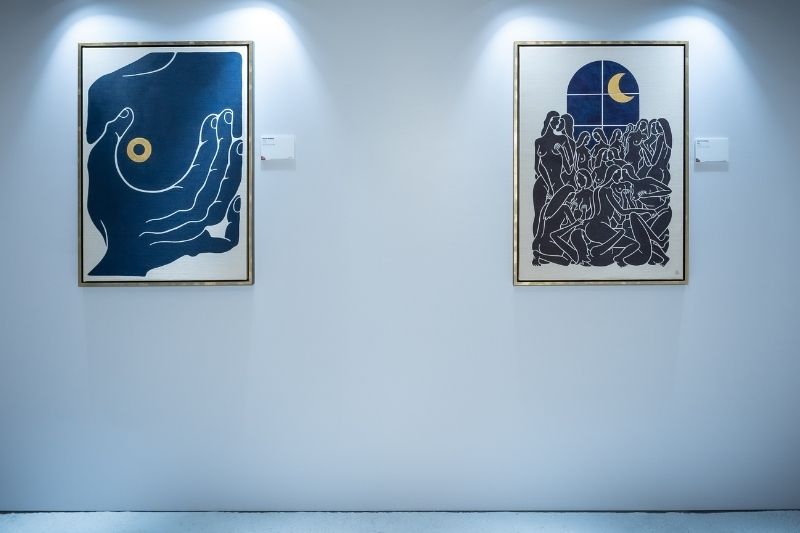
What’s next for KLF?
We’re going to start the year with a talk series called the Self Love Series.
We will be relaunching our private school programme which will involve ideally, up to a thousand students, where we provide access to boys and girls to the vaccine.
We’ve got 100 women in the pipeline with the Adventist Hospital Foundation. We are launching a rehabilitation support service across 5 years for 500 beneficiaries. We will be addressing their reintegration into society, from a spiritual and physiological angle. Women may have had a hysterectomy, so from a physical standpoint, they are cured of cancer, but they may not feel happy anymore, and it affects their partners, them, and their family.
September 2022 we will be back with The ExtraOrdinary Exhibition 3.0. We will be hiring new staff and expanding our board. We’re looking for medical experts and people who are really entrenched in the Hong Kong community.
In 2023, we’re turning 10 years old, so there is really an aim to finish up the institutionalisation of KLF, and hopefully by then be a charity which plays in the big leagues. I’m very excited about that.
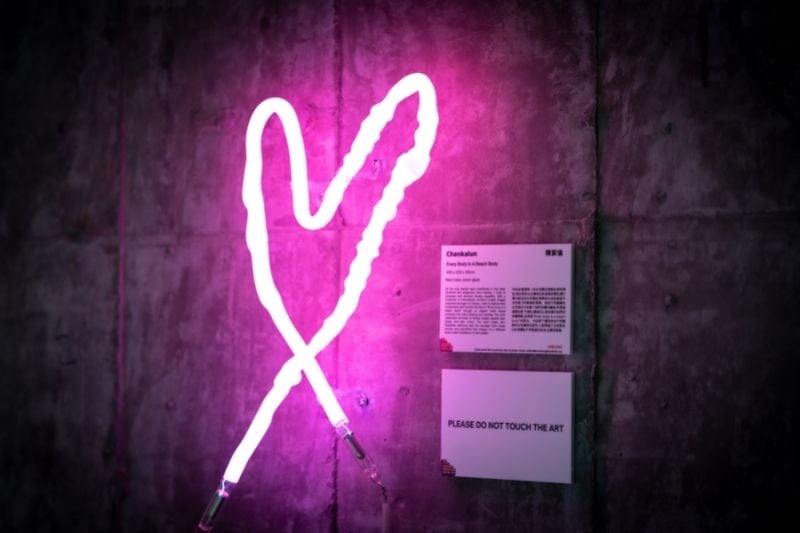
Related Articles
The ExtraOrdinary Exhibition Raises HK$120,000 for Women’s Health
The Women’s Foundation: The NGO Driving Workplace Gender-Inclusivity in HK
